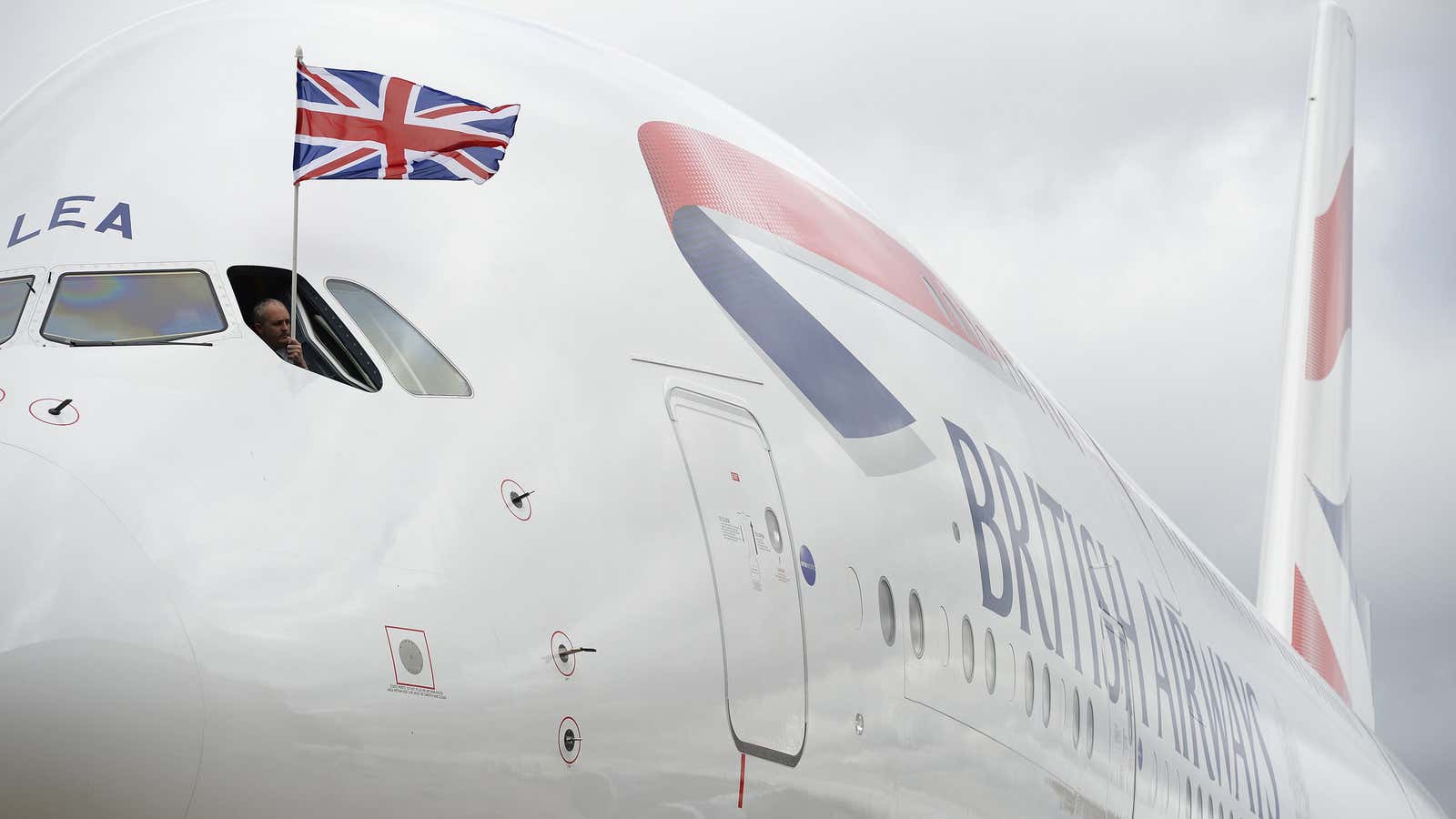If want to see how Britain’s vote to leave the EU affects businesses, look at the airlines.
British Airways parent International Airlines Group is already warning investors (pdf) not to expect a repeat of last year’s surge in profits. It’s a sharply different tune than the one the airline was singing earlier this year when it told investors about its aircraft-buying spree.
International Airlines Group’s optimism has faded following the referendum’s outcome and “current market volatility,” it says.
How bad is that “volatility”? IAG shares plunged more than 20% today (June 24).
The vote to leave is terrible news for travelers, particularly Brits. The British pound’s sharp decline makes traveling abroad more expensive for them, another headwind for demand at a time of only tepid economic growth and fears over terrorism.
And investors haven’t just soured on the parent of British Airways and Iberia. Shares of low-cost carrier eastJet fell 14% while Ryanair dropped nearly 10%. AirFrance-KLM also lost close to 10%, Lufthansa was down just over 9%.
Each of them dropped more than the broader markets, which were having their own dismal day, a telling sign of the gloom facing airlines after the vote.
US carriers were not exempt from investors’ worries. Delta and United each fell more than 6%, while American Airlines dropped close to 9%.
The vote could jeopardize air-rights agreements. A single EU aviation market helps carriers quickly and cheaply open up new routes and expand schedules, agreements that have fueled the rise of low-cost airlines. The details would still have to be ironed out but it could drive up current rock-bottom prices of that bachelor bacchanal at the very least.
It could also drive investment away from London’s Heathrow airport and to other locations like Frankfurt and Dublin, Ryanair’s chief marketing officer said, according to the Irish Times.
And there’s another problem: The currency dive we mentioned earlier could also drive up the cost of imported fuel since it would require more British pounds to purchase US-dollar denominated supply. That diminishes the impact of the best tailwind airlines have had in years: cheap fuel.
